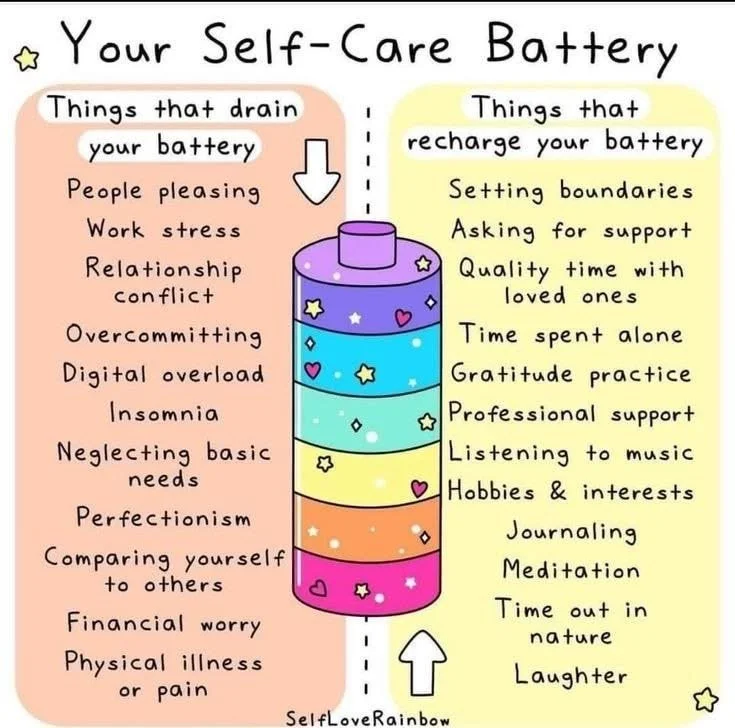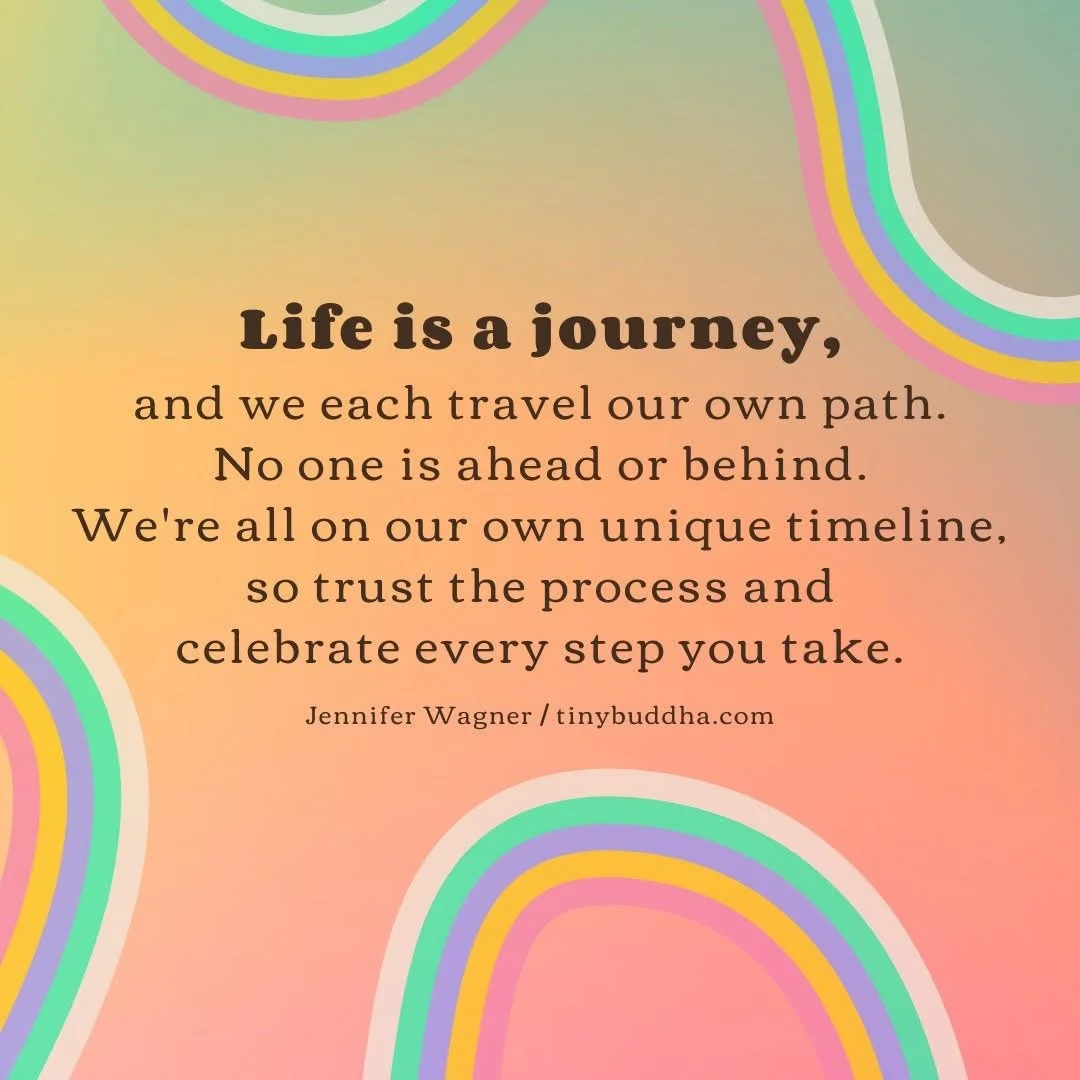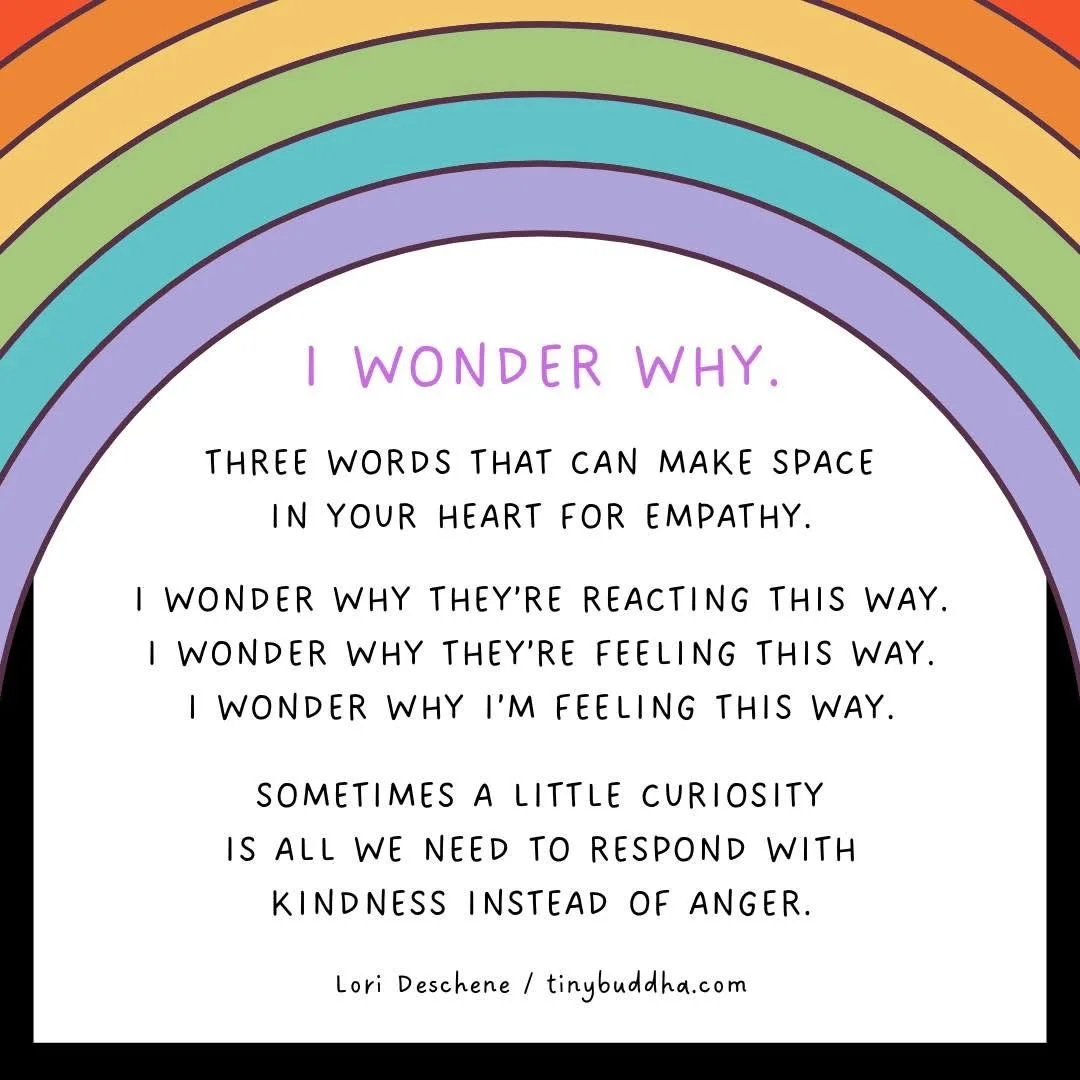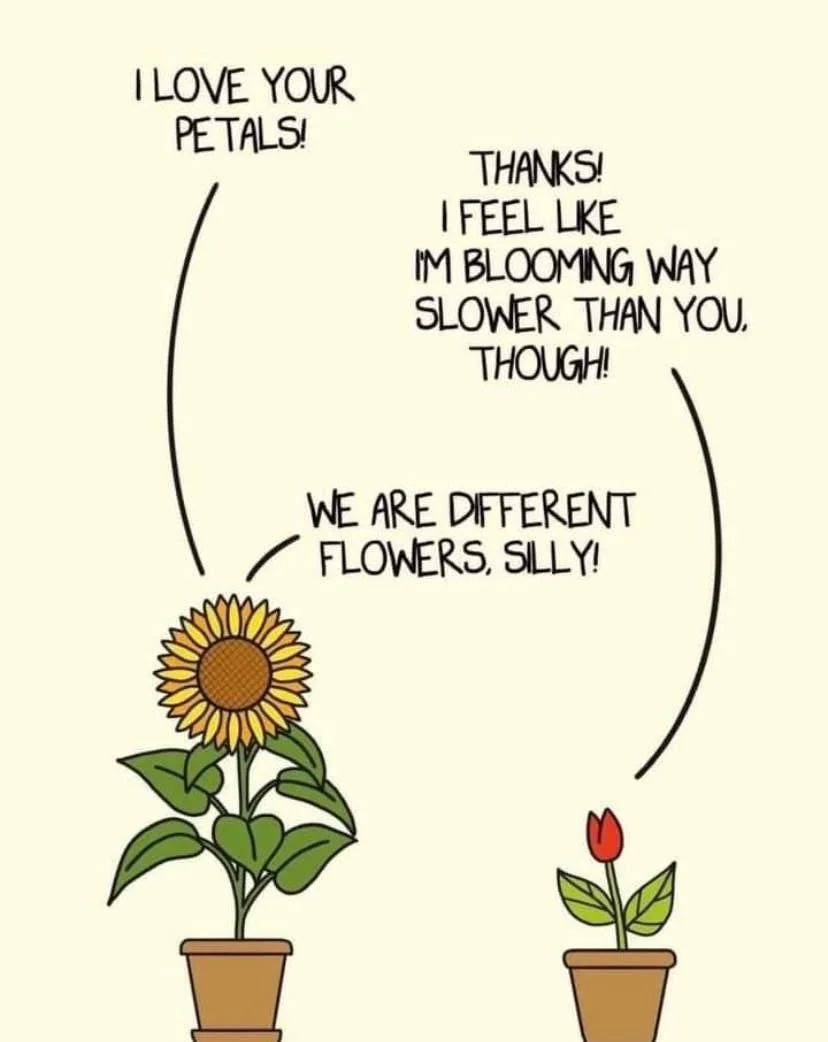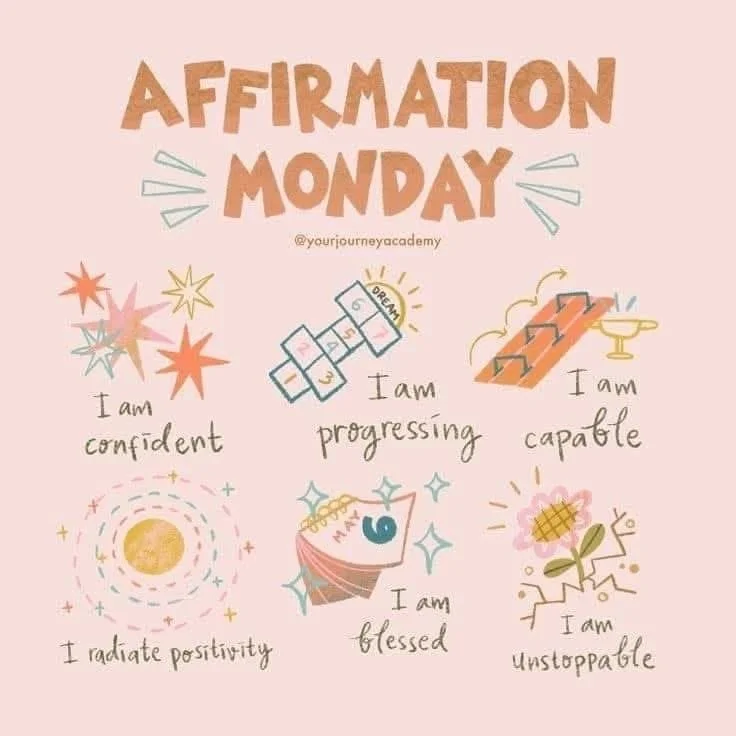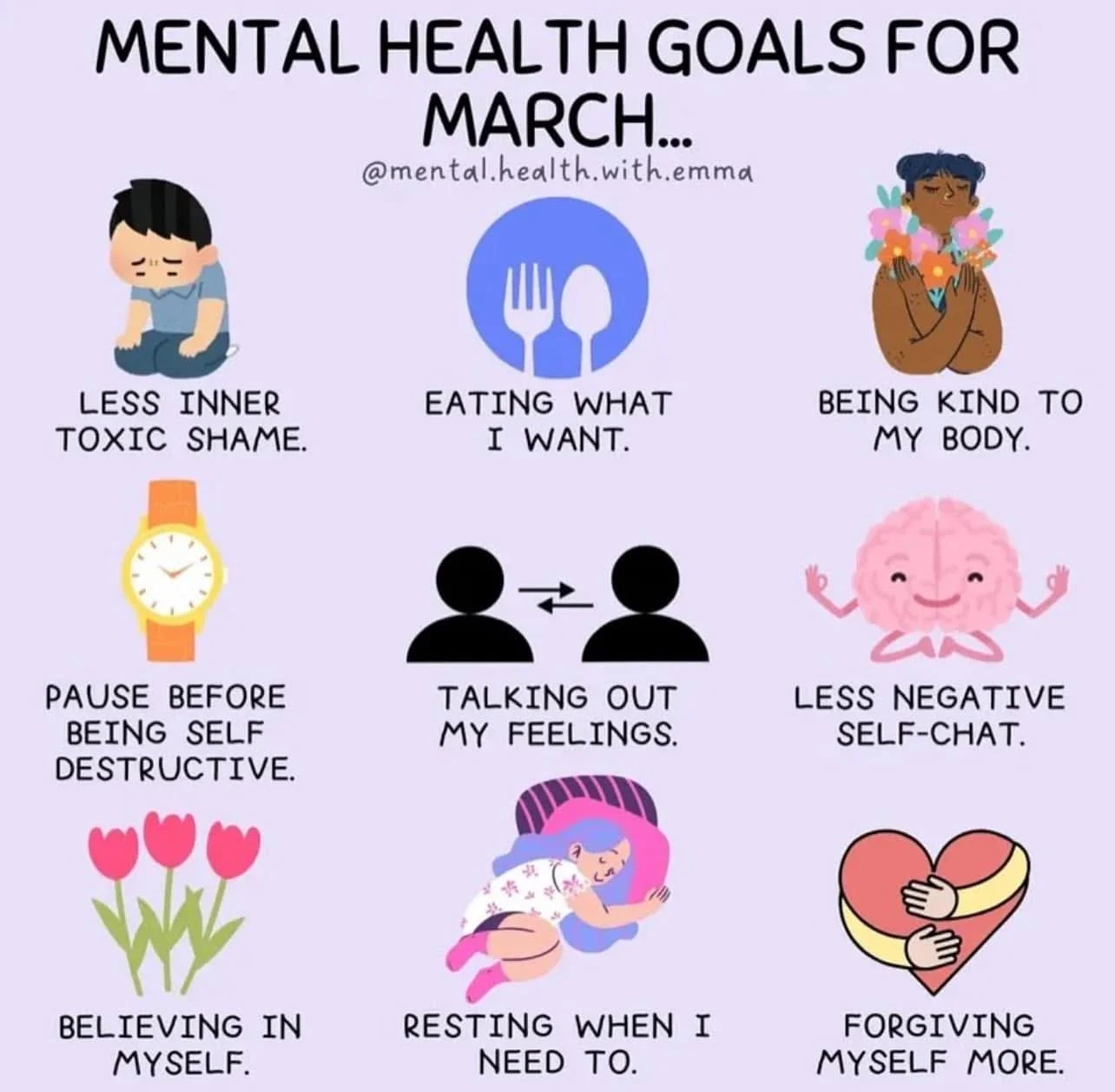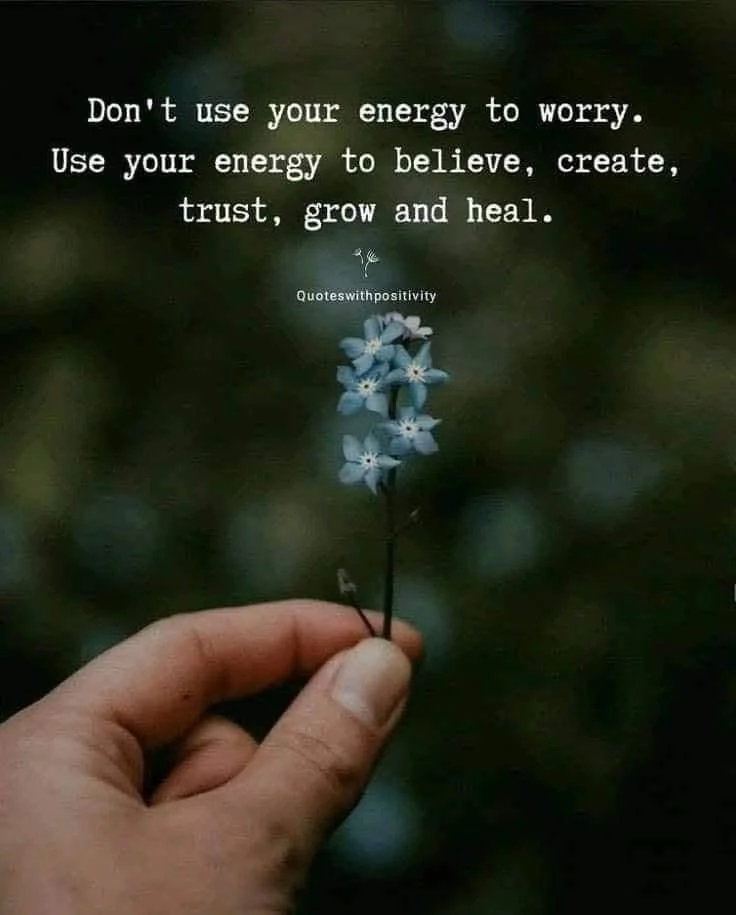🧠Clear Space, Clear Mind🧠
Rearranging your space isn’t just about aesthetics—it’s a legit mental health move. Research from UCLA found that clutter increases cortisol, your stress hormone. And a study in the Journal of Neuroscience showed that clutter makes it harder to focus. So if your space is a mess, your brain might feel the same. But here's the good news - tweaking your space can give your mental health a boost.
✨ Fun Facts:
Tidying up triggers dopamine (aka a mini mood boost).
People who declutter regularly report better sleep and less anxiety.
Plants (even fake ones) are proven to reduce stress. Yes—Fernie Sanders counts.
🪴 Simple Ways to Refresh Your Space:
🪑 Rearrange your furniture—facing a window = instant light + good vibes.
🧼 Try the 10-minute tidy. Set a timer, dance while you declutter.
🕯️ Create a “reset corner” with a cozy chair, blanket, or candle.
🎨 Add art or quotes that remind you of what matters.
🌿 Add a plant. Bonus points if you name it.
✨ This isn’t just décor—it’s daily self-care. Your environment affects your mood, energy, and focus. Little shifts = big mental upgrades.
💬 Have you ever rearranged your space to reset your brain? What helped the most? Share your tips or tag us in your mental health makeover—we’d love to see it! 🛋️
Need help organizing more than just your physical space? TDT Counseling Services is here to help you clear the mental clutter, reset your focus, and get back to feeling like you.
🧠You are NOT Your Error Message: What Actually Defines You🎯
Let’s have a little real talk about identity. Contrary to what your 3:00 am brain or awkward middle school flashbacks may suggest, you are not your worst moments, your messiest mistakes, or that time you called your current partner by your ex’s name (Yep, still cringing)!
According to the National Institute of Mental Health, nearly 1 in 5 U.S. adults lives with a mental illness. But research consistently shows that people who view themselves beyond their diagnosis experience higher levels of hope, motivation, and resilience. You are a whole, dynamic human being—not just a collection of symptoms or struggles.
👎 Things That Don’t Define You
That time you hit "reply all"
Your diagnosis
Your overthinking spiral
Life’s setbacks and plot twists
✅ Things That Actually Define You
Your resilience when things fall apart
Your laugh that could light up a room
Your dreams, goals, and weirdly specific passion for 90s trivia
Your creativity (even if it only comes out in sticky note doodles)
Your values and how you treat people
Research from the University of Michigan found that people who identify with their strengths, values, and interests over their limitations report greater life satisfaction and self-esteem. Your spark matters way more than your setbacks.
So here’s your reminder:
You are not your diagnosis.
You are not your past.
You are not your intrusive thoughts. You are your perspective, passion, and perseverance
🎸 Whether you’re rocking out on a guitar, leading with empathy, or just trying your best each day—that’s what defines you.
💬 Let’s Flip the Script Together
If you’re feeling weighed down by labels or struggling to see the good stuff, therapy can help you reconnect with your real identity. At TDT Counseling Services, we help you celebrate what makes you, you—while building the tools to thrive along the way. Let’s talk!
🚧 Boundaries vs. Walls: One Protects You, the Other Blocks Wi-Fi (and Connection)🚧
Let’s talk boundaries. Not the “don’t eat my leftovers” kind (although, valid)—we’re talking emotional boundaries. The kind that helps you feel safe, respected, and still totally you in your relationships. According to the American Psychological Association, healthy boundary setting is linked to reduced stress, improved self-esteem, stronger relationships, and greater emotional stability. A 2020 study in the Journal of Counseling Psychology found that people with clear interpersonal boundaries reported higher life satisfaction and lower anxiety. So yes, your mental health LOVES boundaries.
🛡️ Boundaries = Self-Respect:
Boundaries are like a well-designed fence—you can still wave to people, invite them in, and enjoy connection. But they know not to trample your peonies.
✅ They protect you without isolating you
✅ They invite respect and understanding
✅ They grow with your relationships
✅ They help you stay close without losing yourself
✅ They empower you to feel seen, safe, and heard
🧱 Walls = Self-Defense Mode: Walls, on the other hand? Those are more like a fortress with a moat and a dragon. They’re built out of fear, hurt, or burnout—and while they may feel safer, they actually.
🚫 Prevent connection
🚫 Promote rigid thinking and over-protection
🚫 Isolate you from support
🚫 Limit emotional growth
🚫 Push people away who may genuinely care
✨ Tips to Set & Maintain Healthy Boundaries:
1. Know your limits – Get clear on what feels good vs. draining
2. Start simple – One boundary at a time (like not answering emails after 7pm)
3. Use “I” statements – “I need time to recharge after work” hits better than “You’re too much.”
4. Stay consistent – Wobbly boundaries confuse people. Reinforce with kindness.
5. Expect pushback – Especially from those who benefitted from you having none
6. Check in with yourself – Boundaries can evolve, but make sure you’re not shifting just to avoid discomfort
Boundaries say, “I care about you and I care about me.” Walls say, “I’ve been hurt, so stay away.” Let’s work on building bridges with boundaries that protect, not walls that isolate.
Need help figuring out where to draw the line (and how to stick to it)? TDT Counseling Services is here to support your boundary-building brilliance.
🧠 Love Your Brain: It’s the Real MVP🧠
That squishy, overworked superstar between your ears? Yeah, your brain. It’s your ride-or-die—and it needs some TLC. Recent research from Harvard Health and the Global Council on Brain Health shows that brain health is directly tied to mood, memory, longevity, and overall mental wellness. In short: if your brain’s not thriving, neither are you.
Fun Brain Facts:
🥇 Energy Hog: Your brain is only 2% of your body weight but uses 20% of your energy.
💃 Dance Boosts Brainpower: Dancing lowers dementia risk more than any other physical activity.
😂 Laughter = Brain Candy: It boosts dopamine, reduces stress, and sharpens memory.
🔄 Neuroplasticity Is Real: Learning new skills builds new brain pathways—at any age.
🍬 Chew Gum, Focus More: Some studies show gum may improve concentration (use wisely).
🌿 Nature Nurtures: Just 20 minutes outside boosts mood and working memory.
✨ Gratitude Works: Journaling increases activity in the brain's emotional regulation center.
🧠 Brains Love Variety: Too much routine can dull neural activity. Shake things up!
🐾 Hugs Heal: Cuddling releases oxytocin—aka the love hormone—for stress relief.
⚠️ Stress Shrinks Brains: Chronic stress damages areas linked to memory and focus. Set those boundaries.
🚫What’s Draining Your Brain Battery?
🙃 Saying "yes" when you mean “absolutely not”
📆 Overscheduling yourself into burnout
🎯 Chasing perfection (spoiler: it doesn’t exist)
📱 Screen overload
🔁 Social comparison spirals
😴 Skimping on sleep
💬 Carrying chronic stress like a backpack full of bricks
🔌 Time to Recharge:
🧩 Stimulate your mind: Read, learn, play
💃 Move your body: Dance parties included
🥦 Feed it well: Greens, berries, omega-3s
😴 Prioritize rest: Sleep is your brain’s reset button
🌀 Mix it up: Try new routines and habits
👯 Stay social: Connection = cognitive boost
🧘 Manage stress: Mindfulness, breathwork, therapy
📵 Unplug: Digital detox = attention + emotional reset
📝 Practice gratitude: Small thanks, big brain benefits
😂 Laugh. Often.
🐶 Cuddle more: With pets, people, or soft blankets
Your brain is working hard—make sure you’re working with it. Nourish it, challenge it, protect it, and give it moments of joy.
Need support building brain-loving habits? TDT Counseling Services is here to help you recharge, refocus, and thrive—one healthy neuron at a time.
🔋 Is Your Self-Care Battery Running on 1%?
We all have one. Not the iPhone—we mean your self-care battery. And no, there’s no charger you can plug into the wall while binge-watching true crime and ignoring texts (although tempting, we know). Just like your phone, your mind and body need recharging, too—and most of us are unknowingly draining our emotional batteries faster than a group chat on fire.
📉 Self-Care Drain: The Sneaky Culprits
Recent studies (like those from the American Psychological Association) show that neglecting self-care increases stress, emotional exhaustion, and even physical illness. Yet many of us still fall into habits that quietly deplete us:
🙃 People-pleasing – Saying “yes” while your inner voice screams “please no”
📆 Overcommitting – Because your calendar looks better when it's crying
🎯 Perfectionism – Spoiler: No one is perfect—not even me (and I’m a therapist)
📱 Digital overload – Scrolling until your eyeballs beg for mercy
🔁 Comparison loops – “Why don’t I have my life together like them?” ← Stop that.
💬 Chronic stress or illness – Constantly powering through without recharging
🔌 So How Do We Recharge?
Don’t worry—this isn’t about bath bombs and bubble wrap (unless that’s your thing). Here’s how to plug back into your real self-care:
🛑 Set boundaries – Say no. Mean it. Protect your peace.
🙋♀️ Ask for help – It’s not weakness. It’s wisdom.
🎨 Do things you enjoy – Craft. Hike. Bake bread. Paint rocks. Whatever brings you joy.
📝 Practice gratitude – It rewires your brain for more positive focus.
😂 Laugh. Seriously. – Laughter boosts mood, reduces stress hormones, and makes life less... dramatic.
🌿 Spend time alone – Solitude isn’t selfish. It’s soul fuel.
If your self-care battery is running low, take it as a sign—it’s not laziness, it’s maintenance. You are not a machine. You’re a whole, complex, amazing human. You deserve to recharge, refill, and reconnect with what makes you feel alive.
Need help identifying what’s draining your energy or how to reset? TDT Counseling Services is here to help you plug back into you.
🛣️ Stay in Your Lane (Unless You're Taking the Scenic Route)
Let’s be real life’s a weird, winding journey. Some days feel like a cruise down the highway with your windows down and your favorite song blasting. Other days? You’re stalled in emotional traffic behind someone who doesn’t know how to use a blinker. But here’s the thing: your journey is yours! We all have different starting points, pit stops, speed limits, and destinations. And when you spend your time comparing your road to someone else’s, you’re just wasting gas.
📉 Comparison is a detour disguised as direction. You might be walking your path and suddenly feel like you're way behind because someone else (looking at you, LinkedIn overachiever) seems five steps ahead. But here’s the truth: You’re not Dolly Parton. You’re not Jasmine Crockett (although we all want to be). You’re not your friend who’s somehow running marathons and baking sourdough. You’re you. And your path is valid—even if it looks nothing like theirs.
🧭 5 Simple Tips to Stay Focused on Your Journey:
1. Set intentions that excite you: What do you want to work toward? Motivation lives in your why.
2. Limit the comparison scroll: social media is a highlight reel, not a roadmap.
3. Break big goals into little wins: Tiny steps = big momentum. Celebrate them.
4. Check in with yourself weekly: Are your actions matching your goals—or someone else’s?
5. Practice gratitude for your current chapter: Every season has a lesson. Even the messy ones.
🎉 Your Timeline Is Not Broken. You don’t need to be “there” yet—wherever “there” is. You just need to keep showing up for yourself. Trust the process. Celebrate the steps. And remember success isn’t about speed—it’s about alignment.
So, take the scenic route. Stop for coffee. Change your playlist. Just don’t forget—you’re allowed to build a life that makes you happy. You’ve got this. 🚗💨
Need support staying focused on your path? TDT Counseling Services is here to walk (or cruise) with you, every mile of the way.
💕 Raising the Next Generation of Underdog Defenders 💕
Parents, grandparents, aunts, uncles, besties, and chosen family—this one’s for you.
We all want to raise kids who are strong, kind, and brave. But in a world that often glorifies being “cool” and makes “hate” feel permissible, we must be intentional about teaching what really matters: EMPATHY, COURAGE, and COMPASSION!
👉That’s why one of the simplest yet most powerful lessons we can give our kids is this: “Stand up for the underdog. Protect your friends when they’re down. And remember—being different is a gift.” It’s okay if they’re not the “cool kid.” Because kind will always outlast cool.
📊 Why it matters: Research from Harvard's Making Caring Common project found that 80% of kids think their parents care more about achievement or happiness than kindness—even though most parents say the opposite. Kids are listening not just to our words but watching what we model.
So how do we start? Here are a few simple but powerful ways to raise the next generation of change-makers:
🌱 Model kindness: Speak up when someone is being treated unfairly. Let them see you do it.
💬 Talk through teachable moments: Playground drama? That’s a goldmine for life lessons.
📚 Read stories about underdogs, helpers, and everyday heroes: Representation inspires courage.
🎉 Celebrate their empathy: Reward kindness the same way we celebrate grades or goals.
💡 Remind them often (like I tell my own children): "You were born to change this world. And you will. Be a leader, not a follower."
We are laying the foundation right now for a generation that will rise up, speak out, and love loud. It starts with us. Let’s raise them to be the ones who make the world softer, braver, and better. 💪
Need tips or insight on parenting with purpose? TDT Counseling Services offers guidance, resources, and support to help you raise the next generation of kind, confident leaders.
"I Wonder Why..." — The Question That Might Just Save Your Day
Let’s set the scene: You’re driving. You’re caffeinated. You’re in a groove. 🚗 Then boom—someone’s crawling in front of you at 12mph. Cue: internal rage monologue. 😤
But what if, instead, you paused and asked: “I wonder why they’re driving so slow?” Maybe they just got bad news. Maybe they’re anxious behind the wheel. Maybe it’s just a rough day. Curiosity > Judgment 🤔
Most of our snap reactions say more about us than the other person. But studies show that when we respond with empathy and curiosity, we’re 33% more likely to reduce conflict and improve emotional outcomes (Journal of Experimental Social Psych). Harvard research even links empathy to better cooperation, lower stress, and more connected communities.
Translation:
✨ Empathy = better vibes, better outcomes.
Next time you catch yourself reacting, try wondering:
🌀 “I wonder why my coworker always has the last word?”
🌀 “I wonder why that person plays the victim?”
🌀 “I wonder why my partner always need to fill the silence?”
This isn’t about excusing behavior—it’s about giving space for what you don’t know yet. Respond with curiosity, not combustion.
Bottom Line:
🧦 Step into someone else’s shoes (yes, even Crocs).
🧘♀️ Choose compassion over reaction.
🚪 Leave assumptions at the door.
You never know what someone’s carrying. And your response? It might just change their entire day—or yours. Humanity needs a boost. You’ve got the power to give it—one empathetic pause at a time 💛
Need help building that pause muscle? TDT Counseling Servicesis here to support you with empathy, insight, and a judgment-free space to grow.
🎯 Setbacks, Sling Shots and Launching Toward Growth 🎯
Let’s be real, setbacks happen. In fact, in sessions (and yes, I say this a lot), I often encourage individuals to relabel their setbacks as gentle—or not so gentle—reminders. Reminders that something needs to change... or that we never want to go back to where we were before.
You might feel stuck. You're not alone—70% of people report feeling stagnant at least once a month (Harris Poll, 2022). But here’s the twist, research shows that people who reflect on failure are more likely to bounce back better and faster (PSPB Journal). Setbacks aren’t the problem—how you respond is everything.
🏹 Sling Shot Mode Activated🏹
Think of yourself like a sling shot. A pullback doesn’t mean you’re failing—it’s building momentum. The steadier and more intentional that pullback, the farther you’ll launch… and in the right direction.
When life pulls you back, try this:
✔️ Relabel & Refocus – Not failure, just feedback
✔️ Learn the lesson – Even the cringey ones
✔️ Expect setbacks – They’re part of the process
✔️ Adjust the aim – Where do you want to go next?
Yes, you’ll revert to old habits. Yes, you’ll fall off track. That’s normal. The real magic? Using those moments as fuel—not evidence that you’re off course. Growth isn’t a straight line. Setbacks aren’t stop signs—they’re launchpads.
Need help finding your focus again? TDT Counseling Services is here to help you aim with clarity and fly forward with purpose.
Life Be Lifing: You're Not Supposed to Be a Badass 365 Days a Year
I’ll keep this short and simple - You are not meant to be a badass every single day.
(Yes, even you. Especially you.)
You’ve probably heard me say this before—and spoiler alert—you’ll hear it 1,000 more times. Why? Because it’s simple, powerful, and downright life-changing:
👉 Relabel & Refocus
Some days you wake up, slay your to-do list, hydrate like a pro, and even compliment a stranger just because your vibe is that high. Other days? You accidentally pour orange juice in your coffee, brush your teeth with pimple cream (true story), or send a snarky email that should have been run through ChatGPT first.
Life has a sense of humor. And sometimes, it’s aggressively sarcastic. But here’s the thing both kinds of days matter.
There’s something wildly freeing about letting go of perfection. Even in those “oops” moments, there’s a lesson if you choose to look for it:
· Orange juice in coffee? Maybe multitasking isn’t your superpower before 9am.
· Pimple cream on your toothbrush? Label your tubes, Linda!
· Snarky email gone rogue? Lesson learned: Always type your email in ChatGPT and then copy-paste into outlook.
It’s all perspective. There will be days you feel aligned, inspired, and invincible. And there will be days where your only accomplishment is not yelling at the printer or making it to bedtime without crying into a sleeve of Oreos. Both are valid. Both are brave. Both are enough. Whether you’re rising to the challenge or giving yourself permission to step back, you are showing up—and that counts.
Visualize it like this:
📈 Some days you're a warrior.
📉 Some days you're a wet sock.
🌀 And some days, you’re both before 10am.
P.S. Please don’t brush your teeth with pimple cream. It does not taste minty. You’re welcome.
Need help learning how to relabel, refocus, and find the beauty in the chaos? TDT Counseling Services is here for all the days—slay days and sock days alike.
Feeling Out of Control? Here's What Actually Helps
Ever spiral about something completely outside your control—like your coworker’s weird email tone, or your neighbor’s intense dedication to leaf blowing at 6am? Yeah. Same. We’ve all been there—gripping tightly to things we can’t change while our sanity packs its bags.
But here’s the truth bomb 💣:
Research shows that spending too much time ruminating on uncontrollable stressors increases anxiety, depression, and even physical illness. A study in the Journal of Behavioral Medicine found that people who focus on uncontrollable stressors experience more chronic health issues and emotional dysregulation than those who focus on things they can control. (Like not checking your ex’s Instagram at 2 a.m. 👀)
So what can you control?
More than you think—starting with your thoughts, feelings, behaviors, and what you put out into the universe.
8 Quick Shifts to Reclaim Your Sanity & Sense of Control
1. 🧠 Use Healthy Coping Strategies: Stress-snacking on Doritos is a vibe, but long-term? Not ideal. Try breathwork, movement, journaling, or just saying “no” to stuff you don’t have space for.
2. 🛑 Set and Maintain Boundaries: Boundaries aren’t walls—they’re filters. Say it with me: “I can care about you and still say no to you.”
3.📱 Limit Social Media Time : The scroll-hole is real. The drama, the FOMO, the TikTok’s about someone else's perfectly curated nervous breakdown... Step away. Seriously!
4.📏 Know Your Limits: You're not a robot. You can’t pour from an empty cup. (Or send one more “per my last email” without snapping.)
5.⚡ Invest in Energy-Worthy People & Spaces: If it drains you, it doesn’t deserve prime real estate in your brain. Period.
6.🧘♀️ Listen to Your Body: Tight chest? Headache? Doom-scroll fatigue? That’s your body waving a tiny red flag. Pay attention.
7.🗣 Ask for Help + Be Vulnerable: Hard? Yes. Worth it? Absolutely. Vulnerability isn’t weakness—it’s human.
8.💬 Watch Your Communication: Only 7% of communication is your actual words. The rest (93%)? Tone, body language, and the dramatic eye roll you don’t think people notice, THEY DO!
Bonus Tip: Talk nicer to yourself. Seriously, if your inner monologue is meaner than a middle school group chat, it's time for a rebrand.
Overall, you can’t control the weather, your boss’s 4pm meeting invites, or the Wi-Fi cutting out during therapy. But you can control how you react, how you care for yourself, and where you invest your energy. Focus inward. Adjust your expectations. Take a breath. And maybe—maybe—mute your group chat.
Need support getting grounded when life gets wild? At TDT Counseling Services, we help you reclaim your peace, shift your focus, and build emotional muscles for the chaos curveballs.
Before You Speak – Always Remember to T.H.I.N.K! 🧠
Ever blurted something out and instantly regretted it? Word vomit happens, but thoughtless words can be hurtful—even unintentionally. In today’s fast-paced world, more people need to THINK before they speak.
T.H.I.N.K Before You Speak
✅ T – Is it True? Misinformation spreads fast. Make sure what you’re saying is factual—honesty builds trust.
✅ H – Is it Helpful? Are your words guiding, supporting, or encouraging? If not, reconsider their value.
✅ I – Is it Inspiring? Words have power—use them to uplift and motivate others.
✅ N – Is it Necessary? Not everything needs to be said. Pause and ask, Does this add value?
✅ K – Is it Kind? Kindness costs nothing but makes a world of difference. Choose words that heal, not harm.
Final Thoughts
Becoming a better THINK-er takes practice, but mindful communication leads to stronger relationships and a more compassionate world. Small changes in how we speak can make a big impact.
✨ Need help improving communication or emotional awareness? TDT Counseling Services is here to guide you toward mindful conversations and stronger connections. Reach out today!
The Amygdala: Your Brain’s Emotional Command Cent
Your amygdala is the brain’s tiny but mighty emotional control hub, shaping how you react to fear, stress, and rewards. This almond-sized structure, located deep in the temporal lobe, plays a crucial role in emotional regulation, social interactions, memory, and stress management.
The Amygdala in Action
✅ Fear & Defense: Activates fight-or-flight responses when danger is sensed. Overactive in anxiety disorders.
✅ Emotional Regulation: Helps process emotions; imbalances can lead to mood swings.
✅ Social Awareness: Recognizes facial expressions and social cues, influencing relationships.
✅ Memory & Emotion: Enhances emotionally charged memories, making them more memorable.
✅ Stress Response: Chronic stress enlarges the amygdala, making it harder to shut down anxiety.
✅ Sleep & Mood: Poor sleep heightens amygdala activity, making emotions harder to regulate.
✅ Rewards & Motivation: Influences pleasure, motivation, and even addiction patterns.
Keeping Your Amygdala Healthy
🧘 Meditate & Practice Mindfulness – Lowers amygdala activity, reducing stress.
💤 Prioritize Sleep – 7-9 hours nightly to stabilize emotions.
🏋️ Move Your Body – Exercise shrinks an overactive amygdala and boosts mood.
🍓 Eat Brain-Boosting Foods – Omega-3s, berries, and leafy greens support emotional balance.
🎭 Engage in Creativity – Music, art, and dance regulate emotions.
💖 Nurture Social Bonds – Strong relationships improve resilience.
😂 Laugh More! – Reduces stress and keeps emotions in check.
Final Thought
Your amygdala is your brain’s emotional DJ, managing life’s highs and lows. Take care of it, and you’ll handle emotions with greater ease.
Feeling emotionally drained? TDT Counseling Services helps you reset, strengthen your amygdala, and regain balance for a healthier mind.
Burnout is Real—And No, You’re Not Just Being Dramatic
Let’s talk about burnout—the energy vampire that turns you from a go-getter into a buffering symbol. If your inbox feels like betrayal, you dream of napping under your desk, or one more email might send you over the edge… yep, burnout is knocking.
Burnout by the Numbers 📊
77% of professionals experience burnout at some point.
83% say it negatively affects their relationships.
Linked to low productivity, absenteeism, and increased anxiety and depression.
Sneaky Signs of Burnout 🚩
Burnout isn’t just “tired”—it’s chronic stress taking over. Watch for:
✅ Brain Fog – Simple tasks feel impossible.
✅ Avoidance – Emails and meetings? Hard pass.
✅ Helplessness – Motivation is MIA.
✅ Exhaustion – No coffee can fix it.
✅ Social Withdrawal – Ghost mode activated.
✅ Mood Swings – Tiny things set you off.
✅ Increased Alcohol/Substance Use – One glass too many.
✅ Physical Symptoms – Headaches, stomach issues, body aches.
Beating Burnout: Your Survival Guide 🛠️
Burnout isn’t a life sentence—here’s how to take control:
✨ Set Boundaries – Your time is valuable.
✨ Prioritize Rest– Sleep is non-negotiable.
✨ Move Your Body – Even a short walk helps.
✨ Find Joy Outside of Work – Hobbies matter.
✨ Take Breaks – Productivity thrives on pauses.
✨ Seek Support – Don’t go through it alone.
Final Thought: Your Worth ≠ Your Productivity
You are not a machine. Rest isn’t a reward—it’s essential. Prioritize yourself before burnout forces you to.
Feeling the burnout creep in? TDT Counseling Services is here to help you reset, recharge, and find balance before you crash.
Stop the Scroll: Why Comparison is Stealing Your Joy
Let’s be honest—we’ve all fallen into the comparison trap. Whether it’s someone’s curated Instagram life, career wins, or that friend who seems to have it all together, it’s easy to start measuring your worth against theirs.
📊 The Stats Say It All:
Studies show that over 60% of people compare themselves to others regularly, and it’s linked to increased anxiety, low self-esteem, and depression. Yikes.
Comparison is a distraction. It pulls you away from your own growth, goals, and joy. It’s okay to look up to others—we can let success inspire us—but your worth isn’t measured by someone else’s highlight reel.
💡 Your success = your journey. It’s built on your knowledge, effort, ambition, wins, and yes—failures. (Failure isn’t a flaw. With the right perspective, it’s a launchpad.)
So how do you shift from comparison to momentum?
✅ Focus on your values, not their timeline
✅ Celebrate small wins (they add up!)
✅ Reframe failure as feedback
✅ Set goals that align with your life—not what looks good online
Remember: Growth isn’t a race—it’s a personal revolution. Let others shine, but don’t forget your light is just as important.
Need help tuning out the noise and building your momentum? TDT Counseling Services is here to help you reconnect with your path.
Flip the Script on the Monday Blues
Let’s talk about it—the dreaded M-word. No, not mocha (we love that), but Monday. Cue the groans and eye rolls. But what if we stopped treating Monday like a villain and started seeing it as a blank slate? A chance to own the week before it owns us?
Say Goodbye to the Monday Blues 😩
Studies show that over 80% of people feel increased anxiety and lower mood on Sunday evenings, dreading the workweek. That dread can follow you all week, dragging your energy, focus, and motivation down.
Flip the Script 🎬
Instead of letting your brain spiral Monday morning, get ahead of it:
"I am confident."
"I will slay."
"I’m grateful for a job to wake up to."
"I am unstoppable."
Cheesy? Maybe. Effective? Absolutely. Positive self-talk can boost mood, reduce stress, and increase productivity. One study even found a 30% rise in motivation among those who practiced it.
Set the Tone Early 🛏️
Want to hit the ground running? Start Sunday night with:
"I will have a productive Monday."
"I’ll get my stuff done."
"This will be a good week."
What you feed your mind grows. Plant the right thoughts.
Make Monday Your Launchpad
Monday doesn’t have to be a drag. With the right mindset, it can fuel your entire week. Start with intention, energy, and a few good mantras.
Ask yourself: How can I chase the Monday blues away and get my shine on? 💫
Need help building a mindset that sticks? TDT Counseling Services is here to support your mental wellness—every day of the week.
Setting Personal Mental Health Goals: Your Blueprint for Happiness
Setting mental health goals isn’t just about checking boxes—it’s about creating a life that supports your well-being. Research shows that people who set specific mental health goals experience improved mood, decreased anxiety, and increased life satisfaction. Let’s dive into the mental health goals that can help you live your best life!
Why Mental Health Goals Matter
People who focus on mental health goals are more resilient and better at coping with stress. Studies show goal-setting increases positive mood by 18% and reduces stress levels by 22%. Goal-setting = growth and happiness.
Your Personal Mental Health Goals
Eliminate Toxic Shame Let go of self-criticism and embrace self-compassion. This reduces anxiety and improves emotional resilience. 🧠💖
Eat Food You Enjoy Food should nourish and make you smile! Balance healthy habits with meals that bring you joy. 🍓🍔
Be Kind to Yourself (Mind and Body) Treat yourself like you would a friend—self-kindness is linked to better mental health. 🌸
Feel Your Feels Don’t suppress emotions. Acknowledge and process them for greater emotional clarity. 🧘♂️
Avoid Self-Destructive Behaviors Challenge negative self-talk and focus on positive, actionable thoughts. 💪
Believe More in Yourself Trust your abilities. Self-belief leads to better mental well-being and resilience. 🚀
Rest More Good rest boosts mood and reduces stress. Make time for sleep and relaxation. 🛌💤
Self-Forgiveness Release guilt. Self-forgiveness lightens your heart and helps you grow. 💖
Setting mental health goals isn’t just productive—it’s transformative. When you focus on growth, healing, and self-love, life gets better, one goal at a time. Ready to set your goals and boost your well-being? TDT Counseling Services is here to guide you every step of the way.
The “Anger of Hope” vs. The “Anger of Despair”: Understanding the Roots of Our Rage
Let’s face it, anger gets a bad rap. But did you know it’s not all bad? Just like a superhero in disguise, anger can be a healthy reaction—when we understand its roots. Let’s break down the two types of anger, so you can figure out which one is running the show.
"Anger of Hope" (Functional Anger) 🌟
Think of this as your emotional alarm system—alerting you that something’s off and your needs aren’t being met. It’s not the “I’m mad because I stubbed my toe” kind of anger, but more like “Hey, I need attention!” It’s a healthy, adaptive response, signaling to your caregiver or loved ones that something needs to change. Like a child crying to signal they’re hungry, this anger protests unmet needs. Healthy, right?
"Anger of Despair" (Dysfunctional Anger) 💔
Here comes the villain: dysfunctional anger. This type emerges when attachment relationships have left you feeling abandoned or rejected. It's the rage that feels uncontrollable or, alternatively, leads to emotional withdrawal. It’s that unmet need from childhood that continues to fester—"Why doesn’t anyone understand me?" If this anger feels more like a volcano waiting to erupt, it might stem from these attachment wounds.
Bowlby’s Big Idea 💭
According to John Bowlby, anger is a normal, necessary part of the attachment process. Healthy anger (Anger of Hope) can strengthen relationships, while dysfunctional anger (Anger of Despair) can be a sign of insecure attachmentand needs some extra TLC.
What Can You Do? 🛠️
Spot the Cause – Is your anger rooted in unmet needs or abandonment? Identifying the cause is key to managing it better.
Speak Up! – Instead of rage or retreat, practice assertive communication to express your needs calmly.
Seek Help – Attachment wounds aren’t easy to heal alone. Therapy can help you process those feelings and learn healthier ways to cope.
Bottom Line:
Anger isn’t always the enemy—it’s your body’s way of saying “I need something!” Understanding the difference between functional and dysfunctional anger gives you the power to transform your rage into positive change.
Need help navigating your Anger of Despair and turning it into Anger of Hope? Let’s talk—TDT Counseling Servicesis here to help!
The 4 Attachment Styles: What’s Your Relationship Blueprint?
Did you know your attachment style might be influencing your relationships without you even realizing it? Yep, we all come with preloaded assumptions and patterns based on how we experienced early relationships. Let’s break it down with a fun, witty look at the four attachment styles and how understanding them can level-up your relationship game.
1. Secure Attachment 🌟
Description: Securely attached folks are like relationship pros. They feel comfortable with intimacy and are confident that their partner is emotionally available. They have a healthy balance of closeness and independence. Cue the happy couple goals!
How to Spot It: You’re comfortable with both intimacy and alone time. You don’t feel the need to chase love or avoid it.
Research Stats: About 50-60% of people have a secure attachment style, meaning these relationship rockstars are the majority (yay for balance!).
2. Anxious Attachment 💭
Description: If you find yourself constantly checking in on your partner or worrying they don’t love you as much as you love them, you might be anxiously attached. You crave emotional closeness and sometimes feel insecureabout whether your partner will be there for you.
How to Spot It: You often seek reassurance and worry about abandonment. Your relationships might feel like a rollercoaster of emotions.
Research Stats: Around 20-25% of people are anxious in relationships, always craving more connection and validation.
3. Avoidant Attachment 🚶♂️
Description: Avoidants love their independence—maybe too much. They tend to keep their emotions at a distance and might shut down when things get too close. Too much emotional intimacy? Not their thing.
How to Spot It: You value space in relationships and might feel uncomfortable with too much emotional closeness. You tend to keep things at arm’s length.
Research Stats: About 20-25% of people have an avoidant attachment style, which means emotional independence is their relationship mantra.
4. Disorganized Attachment ⚡
Description: The disorganized attachment style is a bit of a mix—love-hate relationship with intimacy. Often tied to early trauma, disorganized individuals might find themselves confused about how to interact emotionally. They might desire closeness but also fear it, which causes chaos in relationships.
How to Spot It: You’re inconsistent in how you react to relationships—sometimes clingy, sometimes detached. It’s like your emotional GPS keeps recalibrating.
Research Stats: Around 5-10% of people have a disorganized attachment style, often due to inconsistent or traumatic early relationships.
How Attachment Styles Impact Relationships
We all enter relationships with certain expectations based on our attachment style. Secure types tend to expect trust and stability, while anxious types worry about abandonment, and avoidants might assume their partners will try to smother them. Disorganized types? Well, it’s a mix of both—a little chaotic and unpredictable!
But here’s the good news: Understanding your attachment style (and your partner’s) can help improve communication and build healthier relationships. By recognizing your emotional triggers and patterns, you can respond to relationships more effectively and strengthen the bonds that are right for you.
Ready to Unlock the Secret to Healthier Relationships?
Understanding your attachment style is like getting the manual for how you interact with people. Whether you’re secure, anxious, avoidant, or disorganized, knowing your style gives you the tools to navigate relationships in a way that works for you.
Need some help understanding how your attachment style is impacting your relationships? Let’s work together—TDT Counseling Services is here to help you build stronger, healthier connections.
Stop Wasting Energy: Recharge Instead!
Ever feel like your energy is leaking away, stuck in a cycle of worry and regret? 🙇♀️ Instead of focusing on the what ifs and could haves, you're giving away your power. It’s time to stop wasting your energy and start recharging!
The Cost of Wasted Energy
Around 85% of people spend mental energy on things that don’t matter—things beyond our control. That constant stress and mental clutter leave us drained and unmotivated.
Recharge with Positivity
Imagine focusing on small joys: a good hair day, getting inside your home just before it rains, or dancing in puddles when you’re too late. Shifting focus to the glimmers and silver linings can improve mental health, boost creativity, and increase life satisfaction.
The Power of Positive Energy
Instead of focusing on regret, invest your energy in growth, creativity, and love. Recharging your emotional batteries leads to better mental health and a stronger self.
How to Replace Negative with Positive Energy:
1. Shift Focus – Celebrate the small wins and focus on what’s working.
2. Practice Gratitude – Write down 3 things you're grateful for each day.
3. Mindfulness & Breathing – Breathe deeply and reset your energy.
4. Let Go of the Uncontrollable – Focus on what you can control, release the rest.
5. Have Fun – Do something silly, like dancing or singing in the shower!
6. Surround Yourself with Positive People – Energy is contagious!
Bottom line, stop letting worry and regret steal your energy. Recharge with positivity, focusing on the good stuff and allowing growth, healing, and a better version of yourself to emerge.
Need help shifting gears? TDT Counseling Services is here to guide you back to your spark!





